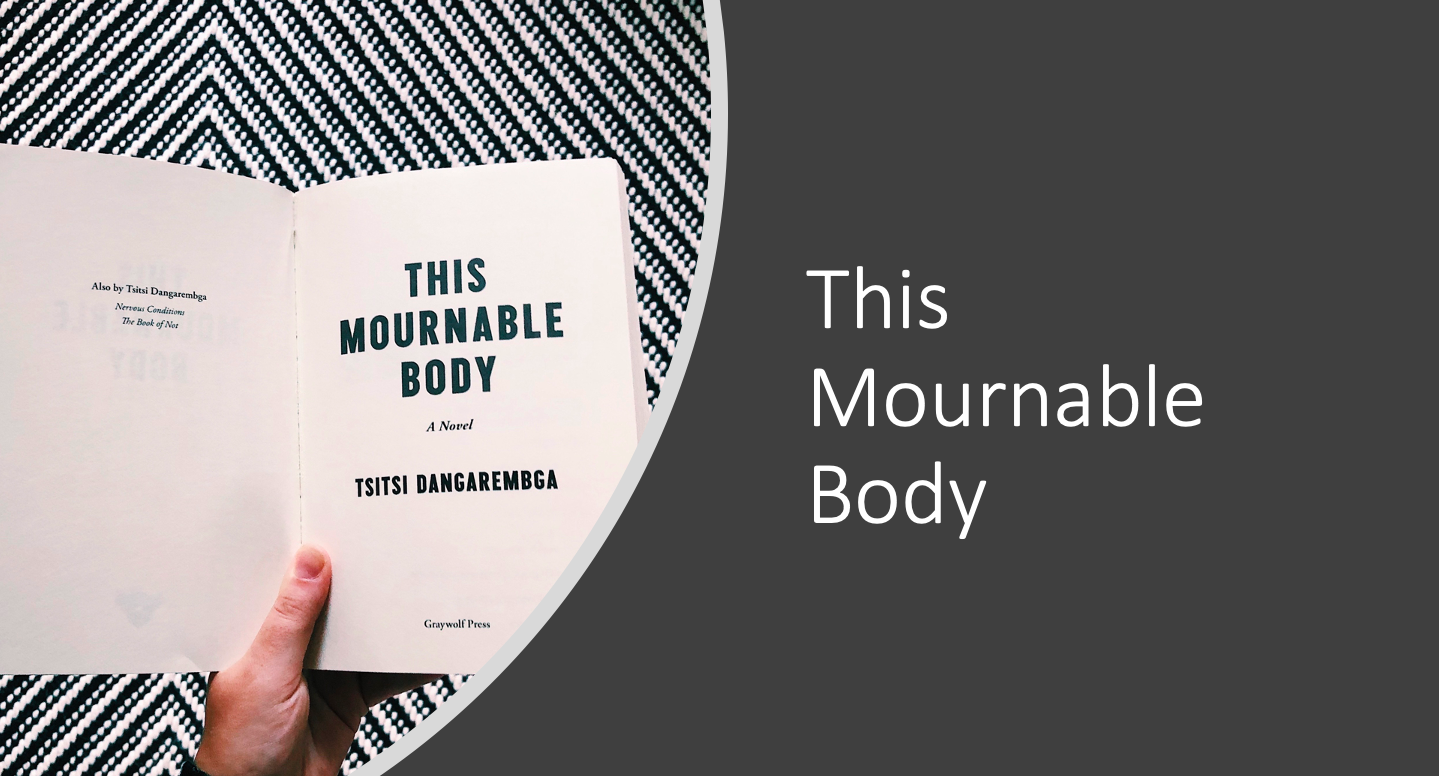Tsitsi Dangarembga’s This Mournable Body is the third book in her series about Tambudzai, a girl turned woman trying to find her way in a post-war/ post colonial world. We see Tambu grapple with her place in the world as an unemployed middle aged woman by experiencing new residences, new jobs, and conflicts with new people. Overall, This Mournable Body presents audiences with a character whose inner turmoil reflects the disarray of her country after it has received independence.
With its placement on The Booker Prize’s shortlist, I expected to enjoy this novel much more than I actually did. However, I failed to connect with it due to my dislike of our main character. Tambudzai is very unlikeable due to her constant denigration of other people, her envious nature, her self-destructive tendencies, and her lack of accountability. Tambu constantly exemplifies throughout the first and second parts that she will do bad things and will not feel bad about it unless it directly affects her. In the third part, though, Tambu is placed in a morally ambiguous career which not only causes her to adapt new habits to achieve and attain her success, but also causes her to revert back to old habits of self-destruction. This is the rare instance in the novel where we can see character development for Tambu even when she is regressing. Besides characterization there were two aspects of the novel that I felt were alienating: 1) the use of second person and 2) the tonal shifts from the first two parts of the novel to the last. To begin, the second person tense was used in order to immerse the reader in the story that was being told. However, the third part of the novel was the only part the second person tense felt truly useful. We were focused on Tambu and her journey more in the third part which allowed me to finally feel entrenched in the narrative. The tonal shifts also contributed to my disinterest. Parts one and two were more based on Tambu’s journey in her personal life which led to various problems, but part three focused on her path and almost completion of her quest to success which allowed for a more nuanced section including a look into economic tourism, exploitation of lands, and what you sacrifice in order to succeed.
One of the main points I grasped from this novel is how the destruction outside can reflect the destruction inside. Tambu is a child of war through and through- she has lived through it and lost people to it. She now has to get used to a place where war is no longer commonplace which proves to be difficult for her. She struggles to get a job, and when she does get a job she struggles to keep up with the fervor of the younger employees. Tambu takes her anger out on those she believes are doing better than her. Roommates, coworkers, and family members all feel Tambu’s wrath eventually when she’s envious of their position in life. Even Tambu feels her own wrath- she is constantly plagued by hallucinations and brutal periods of depression. In what seems to be the turning point of the novel, Tambu brutally assaults a student (a group of people she has begun to envy since they have grown up after the war) in an effort to attain a sense of authority and winds up in the hospital from a subsequent breakdown. The important part, though, comes when Tambu realizes she has never apologized to the student for her actions. In this realization, Tambu comes to the conclusion that if she can apologize for this assault then she can be absolved for all of the wrongdoings she has done previously. Herein lies the catch: Tambu is under the impression that if she simply apologizes for what she has done then it will magically get rid of everything that has been haunting her instead of living with the fact that she has done horrible things and she will have to live with that forever.
